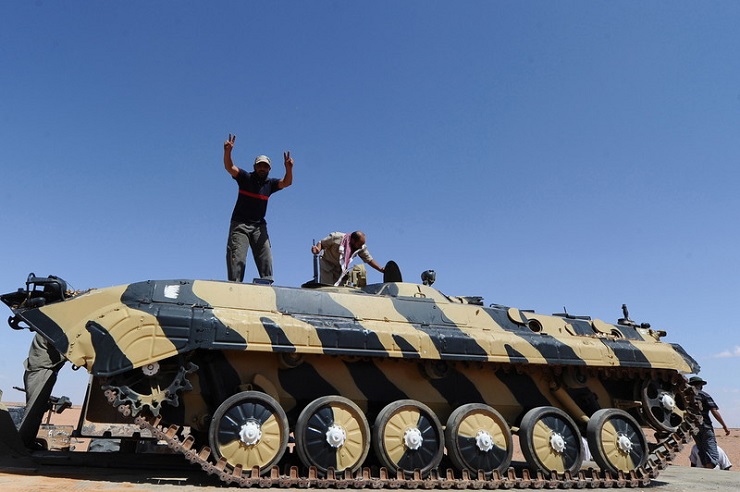Over the past few days, the world has, unfortunately, witnessed a new regional escalation, this time between Egypt and Turkey.
Admittedly, the relations between these countries have been declining since 2013. In November 2013, Turkey cut off diplomatic relations with Egypt. Erdogan, Prime Minister of Turkey at that time, harshly disapproved of the military coup d’état in Egypt led by el-Sisi in July of the same year and did not recognize the ousting of then-President Morsi, who himself ascended to power through a coup in 2011. An important factor influencing Erdogan’s actions was that Turkey welcomed the Muslim Brotherhood’s (banned in Russia) ascent to power in Egypt in 2012 along with Morsi. The Brotherhood, being ideologically close to the ruling Justice and Development Party of Turkey, was seen by Turkey as an opportunity to spread its influence.
Egyptian-Turkish relations then began to deteriorate even more because of the events unfolding in Libya, especially in April 2019, after the beginning of the offensive on Tripoli launched by the commander of the Libyan National Army (LNA), Marshal Khalifa Haftar. The bombing of the Libyan port of Misrata, which Turkey uses to supply Islamist groups with military equipment and is also the main backbone of the units loyal to the Libyan Government of National Accord (GNA) also happened around this time. The port of Misrata is of special importance to the Government of National Accord (GNA) because the Government lacks its own army, so it is forced to rely on Islamist militia groups in Tripoli and Misrata, as well as receive external reinforcement for them.
The tensions between Cairo and Ankara, which support different sides of the opposing political forces in Libya, have further increased following the recent signing of a memorandum on the demarcation of maritime zones in the Eastern Mediterranean between the GNA in the face of Fayez al-Sarraj and Turkey. However, such step by Turkey contributed to the emergence and strengthening of a serious anti-Turkish coalition in the Eastern Mediterranean, which, along with Egypt, includes Greece, Cyprus, Israel, Jordan and Italy. This coalition was established during the Eastern Mediterranean Gas Forum; Turkey was not invited.
Qatar is also an active partner of al-Sarraj’s GNA and has formed a close military and political alliance with the Republic of Turkey in recent years.
Against the backdrop of these events, as well as the escalating military confrontation in Libya, an agreement on military cooperation between Turkey and the GNA of Libya was signed in Istanbul on November 28. The agreement provides for the structuring of a legal body between the countries, education and training in the legal sphere, as well as the strengthening of the relations between their respective armed forces. Afterwards, President Erdogan declared that he was ready to send Turkish troops to Libya to support Fayez al-Sarraj, his ally in the Libyan conflict. As a result, the new Turkish-Libyan agreements have increased the risk of military escalation in the Eastern Mediterranean and further consolidated Turkey’s enemies. Greece has even announced the expulsion of the Libyan Ambassador to Athens.
More fuel was added to the Turkish-Egyptian conflict by Ankara, which sent about 2,000 troops of the Turkey-backed Syrian opposition to Libya. This was done as a result of Turkey’s agreements with Tripoli and is meant to strengthen the Islamist paramilitary group of the GNA. The Guardian reports that about 650 militants left Syria in late 2019 and have already arrived to Tripoli. They were first transferred to Turkey and then sent to Libya in civilian passenger planes, which landed in airports located in areas controlled by the GNA. Another 1,350 militants arrived in Turkey on January 5; some of them are being instructed in training camps in the south. The Guardian notes that the Syrian opposition soldiers signed 6-month contracts with the GNA. After the term is up, they will officially become one of the armed units of the GNA in Libya.
Turkey’s actions have been openly condemned by the countries supporting Marshal Haftar and the LNA, among them Egypt, the UAE, Saudi Arabia and France. This could draw to even more countries into the Turkish-Egyptian conflict and lead to an armed confrontation in addition to the ongoing one in Libya. In these conditions, it is quite possible that Cairo may resort to military measures and deploy tanks, combat aircraft and other armored vehicles to Libya in order to aid Haftar’s forces. Egypt may even send its fleet to the Libyan coast. Saudi Arabia could also join the conflict to aid Egypt, which may cause Ankara to retaliate in the waters bordering Libya. In December, Egyptian air forces began patrolling over Libya in order to prevent Turkey’s military intervention. Ankara, in turn, is deploying military forces to Libya via civilian aircraft.
All this shows that, amid the Libyan crisis, the possibility of an armed confrontation between Egypt and Turkey is growing stronger day by day and the countries surrounding Libya will become increasingly more involved in the conflict. Many experts estimate that if the conflict does escalate, it could take on a more violent form than the Syrian War. This would bring suffering and instability not only to Libya, whose people have already paid too high a price in the previous war, but also to other countries in the region.
Valery Kulikov, political analyst, exclusively for the online magazine “New Eastern Outlook“.

